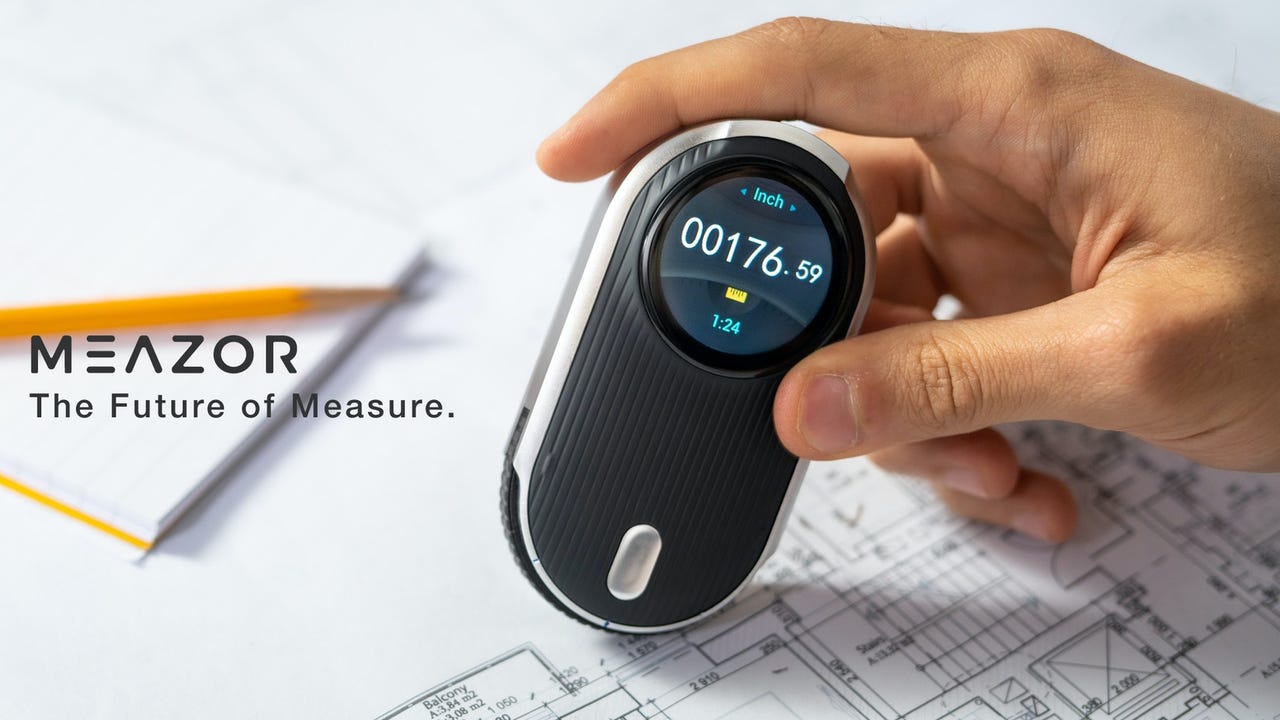'ZDNET Recommends': What exactly does it mean?
ZDNET's recommendations are based on many hours of testing, research, and comparison shopping. We gather data from the best available sources, including vendor and retailer listings as well as other relevant and independent reviews sites. And we pore over customer reviews to find out what matters to real people who already own and use the products and services we’re assessing.
When you click through from our site to a retailer and buy a product or service, we may earn affiliate commissions. This helps support our work, but does not affect what we cover or how, and it does not affect the price you pay. Neither ZDNET nor the author are compensated for these independent reviews. Indeed, we follow strict guidelines that ensure our editorial content is never influenced by advertisers.
ZDNET's editorial team writes on behalf of you, our reader. Our goal is to deliver the most accurate information and the most knowledgeable advice possible in order to help you make smarter buying decisions on tech gear and a wide array of products and services. Our editors thoroughly review and fact-check every article to ensure that our content meets the highest standards. If we have made an error or published misleading information, we will correct or clarify the article. If you see inaccuracies in our content, please report the mistake via this form.
Meazor: An app-enabled measurement device that claims to be "the future of measure"


The company that makes the Meazor device, HOZO Design, conducted crowdfunding through both Kickstarter and Indiegogo and apparently raised more than half a million dollars across both platforms. With nearly 3,000 backers, there was clearly some interest in what the company calls "the future of measure."
See also: Cool tool: Hands-on with the Bosch GLM 50, an app-enabled laser measuring tool
If the Meazor does all that it claims, the $199 list price ($189 on Amazon) might not be bad. But since it's competing with laser distance measuring devices like the Bosch GLM 50C -- available for $113 on Amazon -- Meazor has quite a high bar to reach.
Meazor's features
Let's look at each of the Meazor's promoted features and see how they stand up to hands-on use.
Laser distance measuring: Bosch's laser reaches 165 feet with 1/8-inch accuracy. The Meazor claims 82 feet with 1/16-inch accuracy. In practice, I found Meazor's measurements to be reasonably accurate, but it's tough to tell whether it's truly accurate down to the 16th of an inch. It was correct to the inch across a room, but anything more is like splitting hairs on a gnat.
2D floor plan scanning: This is the most heavily pitched feature of the Meazor, and it's where most of the promotion is placed. To be clear, it's not magic. Basically, the Meazor can measure distance, and it can measure angles of rotation. Together, that lets it reach out to our old buddy Pythagoras to complete the triangle.
Meazor mounts on a tripod, and as you rotate it around a room and take point measurements, it applies the Pythagorean Theorem and tries to draw a floor plan. It is not great. If you're measuring anything that is not line of sight, it fails. There's a bit too much jitter when adjusting the device on the tripod to get a perfect dot on the right part of the room.
The result: not as much a floor plan as a floor guestimate.
Scale and measurement conversion: This allows you to measure either by real-world measurements or by the scale (like on a printed floorplan). It's just a unit conversion. Google can do this. Any number of low-end apps can do this. It's nice to have on the device, but it's certainly not a feature worthy of a couple of hundred bucks.
Curve scanning: This is the second major feature of the device and the one I'm most excited about. If you need to measure along a curve, it's a valuable feature. Of everything Meazor offers, I'd say that this is the standout. It works. It's useful. If you need it, it will be worth the extra bucks Meazor costs.
Digital protractor: Out of the box, the Meazor sort of measures angles, but the company sells a $40 upgrade that provides the typical wings you'd see on a standard grade digital protractor. The gotcha? You can get a very nice digital protractor for about $20 on Amazon. There's no need to spend $199, then another $40 for the same function.
Bubble level: Since the iPhone's native Measure app supports a bubble level function, Meazor's inclusion of the same feature doesn't add much - except now you need two hands to read the level (one for the phone and one for the Meazor).
Should you buy this?
I find having a laser measure invaluable. I have three or four of them, and I use them a lot. It's worth buying one. But is it worth buying the Meazor? That's up to you, your use case, and how much you're willing to spend.
My take on it is that it's a sweet little basic measurement tool that's sleek and compact. Its two most useful features are curve scanning and laser measuring. Curve scanning is a really unique feature, and most laser measuring devices don't do it. But if you just want to measure point-to-point, there are other less expensive and equally capable tools.
What do you think of the Meazor? Does this combination of features appeal to you? Do you like the curve measuring feature? Do you already own a laser measuring device? What are your favorite measuring tools? Let us know in the comments below.
You can follow my day-to-day project updates on social media. Be sure to follow me on Twitter at @DavidGewirtz, on Facebook at Facebook.com/DavidGewirtz, on Instagram at Instagram.com/DavidGewirtz, and on YouTube at YouTube.com/DavidGewirtzTV.